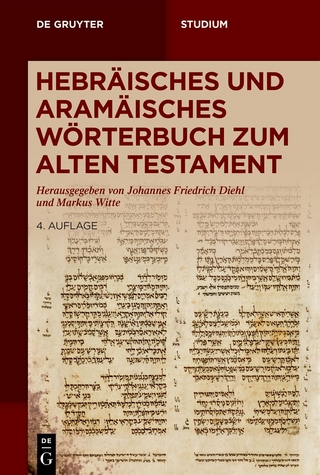![Bild vergrößern Presupposition and [E]motion - Roque N. Albuquerque](/media/90602340)
Presupposition and [E]motion
Peter Lang Publishing Inc (Verlag)
978-1-4331-6394-4 (ISBN)
Roque N. Albuquerque is a full-time faculty member at the University for International Integration of the Afro-Brazilian Lusophony (UNILAB) in the Institute of Linguistics and Literature in Ceará State. He holds a Ph.D. in New Testament from Central Baptist Seminary in Minneapolis and in Language Studies from the Federal University of Rio Grande do Norte (UFRN). He has taught Greek and New Testament for the past twenty years. His postdoctoral research is in the Greek comedy of Aristophanes with Hamline University in Saint Paul, Minnesota.
List of Figures – List of Abbreviations – Preface – Introduction – Participle as Semantic Presupposition – Greek Participles: Modulation Versus Modality and Mood – Functions of the Participle – Semantics of the Upgraded Participle – Examination of New Testament Examples of the Upgraded Participle – Conclusion – Appendix – Bibliography – Reference Index – Subject Index – Name Index.
| Erscheinungsdatum | 20.11.2019 |
|---|---|
| Zusatzinfo | 10 Illustrations |
| Sprache | englisch |
| Maße | 150 x 225 mm |
| Gewicht | 495 g |
| Themenwelt | Schulbuch / Wörterbuch ► Wörterbuch / Fremdsprachen |
| Religion / Theologie ► Christentum ► Bibelausgaben / Bibelkommentare | |
| Geisteswissenschaften ► Sprach- / Literaturwissenschaft ► Sprachwissenschaft | |
| ISBN-10 | 1-4331-6394-2 / 1433163942 |
| ISBN-13 | 978-1-4331-6394-4 / 9781433163944 |
| Zustand | Neuware |
| Informationen gemäß Produktsicherheitsverordnung (GPSR) | |
| Haben Sie eine Frage zum Produkt? |
aus dem Bereich


